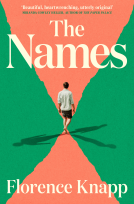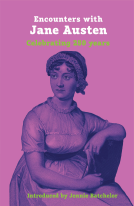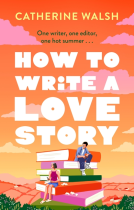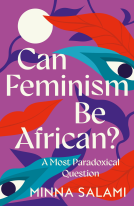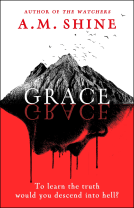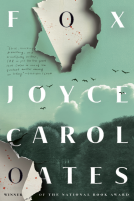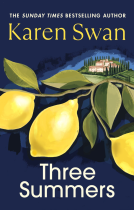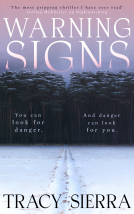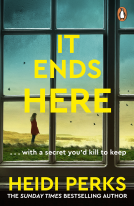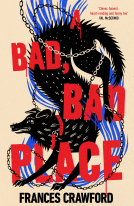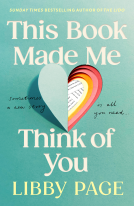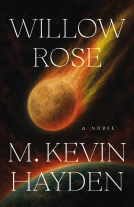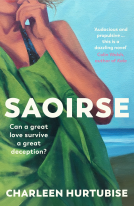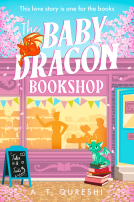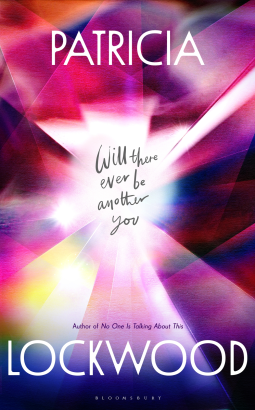
Will There Ever Be Another You
by Patricia Lockwood
This title was previously available on NetGalley and is now archived.
Send NetGalley books directly to your Kindle or Kindle app
1
To read on a Kindle or Kindle app, please add kindle@netgalley.com as an approved email address to receive files in your Amazon account. Click here for step-by-step instructions.
2
Also find your Kindle email address within your Amazon account, and enter it here.
Pub Date 23 Sep 2025 | Archive Date 23 Sep 2025
Talking about this book? Use #WillThereEverBeAnotherYou #NetGalley. More hashtag tips!
Description
THE NEW NOVEL FROM THE AUTHOR OF NO ONE IS TALKING ABOUT THIS – WINNER OF THE DYLAN THOMAS PRIZE AND THE ONLY BOOK SHORTLISTED FOR BOTH THE 2021 BOOKER PRIZE AND WOMEN'S PRIZE FOR FICTION
The world might be in disarray, but for one young woman, the very weave of herself seems to have loosened. Time and memories pass straight through her body, she’s afraid of her own floorboards, and ‘WHAT IS LOVE? BABY DON’T HURT ME’ plays over and over in her ears. ‘I’m sorry not to respond to your email,’ she writes, ‘but I live completely in the present now.’
But tearing through the slippery terrains of fiction and reality, the possibility for human connection seems to beckon from the other side – and with it, the chance for a blinding re-emergence into the world.
From one of our most original, inventive and prodigiously funny writers, Will There Ever Be Another You is a phosphorescent, wild and profound investigation into what keeps us alive in unprecedented times.
Praise for Patricia Lockwood and No One Is Talking About This
'Patricia Lockwood is the voice of a generation' Namita Gokhale
'I really admire and love this book' Sally Rooney
'I can't remember the last time I laughed so much reading a book' David Sedaris
'A rare wonder...I was left in bits' Douglas Stuart
Available Editions
| ISBN | 9781526689207 |
| PRICE | |
Available on NetGalley
Average rating from 38 members
Featured Reviews
 Graham F, Reviewer
Graham F, Reviewer
Patricia Lockwood is author of (among much else): the award winning cult memoir “Priestdaddy”, a series of poems including the viral hit “Rape Joke”, one of the all time great literary tweets, regular London Review of Books articles and (the thing I most know her for) her auto fictional debut novel “No One Is Talking About This” (which mixed a tale of an acutely online life with the story of Lockwood’s Proteus Syndrome sufferer niece) which was was one of the relatively small number of books ever shortlisted for the Booker and Women’s Prize (in this case in the lockdown years of 2021) and was the winner of the 2022 Dylan Thomas Prize.
At the shortlist readings for the Booker Prize – my daughter Mollie (then aged 15) and I were in the socially distanced audience and Mollie submitted a question "In a world threatened by climate change, inequality, racism and COVID do we really need more factual writing. Or would the authors argue that engaged fiction is more important than ever.” which to our delight was asked by the chair of the panel (Alex Clarke).
Anuk Arudpragasam (“Passage North” – who I had earlier interviewed on Radio 4 Front Row) surprisingly gave a fairly pessimistic answer querying the power of fiction given everything he witnessed in the world, whereas tousle haired Richard Powers (“Bewilderment”) gave a brilliantly upbeat message. Patricia Lockwood observed but did not answer.
So when reading this novel – again very auto fictional, and dealing with, among much else, the family’s still mourning for the brief life of her sister’s daughter and Lockwood’s own long-COVID (after catching the virus very early on) – I was really enjoying a passage when – without actually specifying – the narrator somewhat hesitantly travels to London (and Bristol) for both the (delayed) Women’s Prize and Booker Prize events, when to my absolute amazed delight I read this passage:
"I am split apart; I can see their souls, I think again, they sit in bright curves on the tops of their heads; when they speak a pin pricks my lungs and all the air rushes out; my heart is going two hundred beats a minute; one has no hope and I love him, another has hope like fever and I see myself smoothing his hair; a child of fifteen sent in the queston, I myself never utter a word, about whether fiction is justified, about whether we can add white ice back to the world; and I sit in the bright light melting, melting toward Mollie, fifteen, who had asked."
Which is by way of saying this was a guaranteed 5 star read after that
For literary prize fans there are also references in the same passage to eventual Women’s Prize winner Susanna Clark – and a shared love of stuffed pigs – and immediately after the Mollie reference Damon Galgut and how Lockwood knew he had won the Booker, and an interaction with Rowan Williams – a judge that year). The surrounding passages feature (with varying levels of attribution) an online LRB event with John Lanchester, a Guardian interview with Hadley Freedman (Lockwood not a fan when she later found out her views on gender) and a rather bizarre LitHub review of her work by Mary Gordon as well as many other references to interviews/encounters I was less able to trace.
The novel is written in three parts.
The first is written in the third person (although clearly still autobiographical) and is stylistically, thematically (including a nicely picked up reference to her sister losing her phone – the first novel effectively ending with the narrator’s phone being lifted and in both cases the myriad pictures of the late daughter/niece being the main concern of the loss) and narratively a direct sequel to “No One Is Talking About This” – the narrator holidaying in Scotland with her husband, mother and sister later in the same year that the latter’s child was lost. The first part of this story – Fairy Pools – was effectively published as a stand alone story in the New Yorker where in the accompanying article Lockwood said
"The writing of “Fairy Pools” came about halfway through the process of writing “Will There Ever Be Another You”—which I describe as my attempt to write “a masterpiece about being confused,” something no one has ever tried before. “Fairy Pools” clarified things when I embarked on it, because I saw that perhaps the strangeness that the main character experiences, the strangeness on which the whole book turns, had begun earlier than I thought. In short, this woman is geeted to the gills on clam neurotoxin and the world begins to seem unfamiliar to her. But even before that, the world had started to seem unfamiliar to her because of her grief. So when I started writing “Fairy Pools,” it streamlined something in the narrative that had been a little amorphous, a little unclear. It provided the arc, ultimately, that leads through to the end of the novel."
That reference to strangeness and clams is to a food poisoning incident that occurred on the trip and in the second section of this part “The Changeling” the strangeness is instead from a form of long COVID contracted very early on in the pandemic, which takes the form of mental displacement and bizarre accompanying physical (or often mentally experienced) symptoms of switching/disappearance from which in her trademark style – one perhaps exacerbated by the COVID symptoms and also aimed for in the author’s attempt to “write about being confused” – Lockwood free associates from Alzheimer’s to Cabbage Patch dolls to moon-landing truthers to Van Gogh to Galaopogas.
The second section reverts to the first person – the second part of which “The Artist is Present” is where all the literary sections above appear, but this is a varied and sometimes bewildering kaleidoscopic section of varying writing styles and one where the narrator sometimes blurs art (movies, TV series, books) into her experienced reality, one best I think described by the author
"I describe [the novel] as a mirror ball, a hyperobject, a Louis Wain cat, where you’re trying to see every facet of something at once. It’s about the task of trying to put the writing mind back together. And, in my own life, that includes criticism, it includes poetry, it includes travel narratives, it includes fiction, it includes the strange beast that we refer to as the lyric essay. After having COVID, I had to figure out how to do it all again. In the course of writing “Will There Ever Be Another You,” eventually I was able to put those forms of writing back together—with the exception of poetry. One thing I definitely wanted to do was to show not only [the illness and associated mental state], but then the process of rebuilding yourself, rebuilding your ability to read, to write. I wanted to include a lot of different kinds of writing to show that you had to rebuild that on a number of levels. I understood that I was learning to write again, and I would have to write in a different way, and I needed to adopt a new style to convey certain aspects of it: the repetitions you would hear in your head"
The third section mixes first and second person – the opening second person sections refer to her husband’s Jason’s gut surgery (hemicolectomy after a caecal flop) – surgery which proves(d) more complicated than anticipated and a subsequent first party section to her participation in a metal sculpting class. Later there is a long passage in a seminar of biographical writers (I believe a 2024 one “The Art of Biography” at the Calouste Gulbenkian Foundation) - – she only realising shortly before she speaks that her biographical subject was herself (in Priestdaddy) just of course as her novelistic subject is here, and an interview with (I think) Ricardo Ramos Gonçalves (although that was in 2019).
And the novel ends rather enigmatically with a section where the narrator invents her own cryptid – but perhaps appropriately as this is a novel which draws heavily on the contradiction of the reality of cognitive dissonance.
It's difficult to review such a strange, meandering, dense, clever and emotive book in a way that might be helpful to other people, I read it very quickly and experienced the whole thing like a fever dream. If you enjoy Lockwood's other writing, my guess is that you'll love this. Highly recommended and thanks to NetGalley and the publisher for the ARC.
 Camille O, Librarian
Camille O, Librarian
Will There Ever Be Another You by Patricia Lockwood is an absolute delight. She writes so perceptively and intelligently. As soon as I finished reading it I wanted to read it again. Fresh and raw and thought-provoking.
“A little wisdom rose to me: there is always some puke on the text. Heartening, too, to realise there were other custodians. That anyone could care about paper so much, even beyond what was written on it”
Patricia Lockwood is a genius, undisputedly. Her follow up to 2021’s No One Is Talking About This is a confusing novel, with flashes of brilliance, and an incredible amount of jokes that made me howl with laughter. One of those novels that made me feel pretty stupid - I simply don’t think I am on Lockwood’s level, tbh.
It’s tricky to even sum up what this is about. A young woman - who might be Patricia herself, or might be someone else - tries to get through life during the pandemic. She gets sick with Covid, and develops some pretty frightening neurological issues as a result. She falls into the realm of the sick, and spends a long, long time dragging herself out. The novel is about this time, as well as the grief the author feels after the death of her niece, her tricky relationship with her father, and her love for her husband, who also becomes unwell over the course of the novel.
It was surreal and confusing at first but once I got into the rhythm of it, I had a whale of a time. Lockwood is brilliant at pulling out the humour and surrealism in deeply grim situations; her protagonist faces many of these in the novel but the jokes abound. I did find WIll There Ever Be Another You uneven, though - once I thought I was in the groove of it, it felt like Lockwood had pulled the rug from under me. Which is maybe the point about a book about scary, new, disabling illness!
Patricia Lockwood's last novel was barely a novel – the narrator was famous for a tweet about a dog rather than a cat, but that seemed to be about the limit of the identifiable divergence from reality. Maybe it's just that publishers feel uneasy with 'memoir' unless it's another supermarket-sellable slab of plainly expressed celebrity revelations, or worse, a Personal Journey. No One Is Talking About This, on the other hand, was a buzzing cascade of hyperbole, referentiality, stray thoughts, that much-abused term 'stream of consciousness' converging with the internet's firehose, Woolf's attempt to catch each fleeting moment on a chain of words if she'd lived into the age of Twitter and been able to bear more than a day of it. And this has even less deniability, as a protagonist called Patricia Lockwood deals with situations (her husband's medical emergency, a TV adaptation of her memoir, most of all long COVID) which we know also apply to the real Patricia Lockwood, at least unless all those LRB articles and such have been an ingenious viral marketing campaign all along. But beyond sales categories, the important thing is that for all she laments the ways in which brain and words betrayed her in the aftermath of the plague, for all that between that and ceasing to be quite so thoroughly online her style has definitely changed and maybe even, whisper it, shifted a fraction closer to the litfic mainstream, she remains Patricia fucking Lockwood, synaesthete, poet (and more so in poetry than prose, for my money), probably the only person on Earth who could get away with a sentence like "The summer before, I had tried to rewire my brain with mushrooms, but succeeded mainly in becoming temporarily psychic and reading Anna Karenina so hard I almost died."
+Netgalley ARC)
Readers who liked this book also liked:
Jennie Batchelor, Julia Quinn, Natalie Jenner, Charlie Lovett, Talulah Riley, Janet Todd et al
Essays & Collections, Novellas & Short Stories, Women's Fiction
